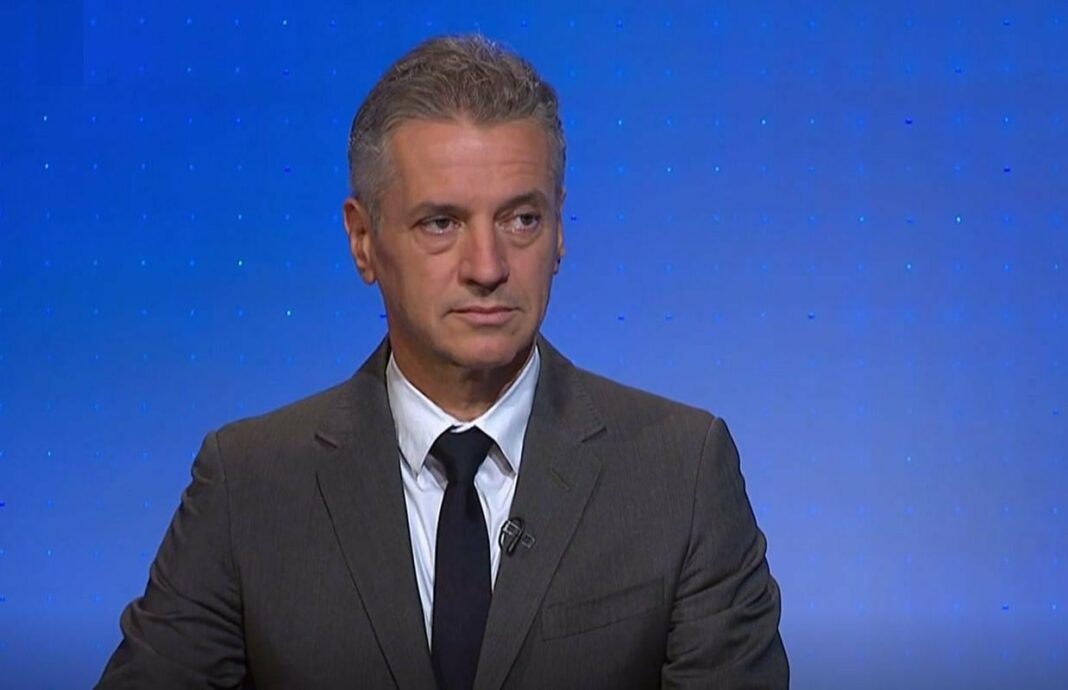By: T. B. (Nova24TV.si)
Prime Minister Robert Golob announced in the show “Odmevi” that the government plans to tax banks at a rate of 0.2 percent on their balance sheets. Taxation seems to be the only way the government intends to address the situation, and it sees this as a solution to assist the banking sector in flood recovery, even though other solutions exist. One such alternative was discussed on the social media platform X, and the leader of the opposition, Janez Janša, also mentioned on the social network X that it would be worth considering this direction.
A month has passed since the catastrophic floods, and during this time, the government has promised quick and effective assistance as well as a long-term and transparently designed recovery plan. Damage estimates keep changing, and more precise data are expected on September 8th. Prime Minister Robert Golob sees the solution for bank assistance in new taxation, even though there are other possible solutions that could be much more favourable for all stakeholders.
After much speculation about how the banking sector would contribute to flood recovery, Robert Golob stated on Odmevi show that Slovenia would introduce a new tax on banks. The government intends to tax the balance sheets of banks at a rate of 0.2 percent through legislation. Golob criticised the banks on the show and declared war on them with the proposal for legislative taxation. He asserted that Slovenia would introduce taxation based on the balance sheets of banks, as he claimed that other countries were doing the same, and Slovenia would not be an exception. “This will most likely be specified in the law on recovery and development, where the balance sheets of banks will be taxed at a rate of 0.2 percent,” Golob explained.
Nonetheless, for assistance in flood recovery, a different, more effective, and more beneficial solution could have been sought, as highlighted by Sergej Berišaj, Chief Technology Officer at United Cloud, on social media platform X. He explained that bank clients have tens of billions of euros in the banks and that the Prime Minister is currently “waging a holy war against the banks” because interest rates on savings accounts are practically non-existent. Berišaj argues that instead of imposing additional taxes on banks and introducing solidarity contributions, the government should democratise and simplify the purchase of treasury bills. This would provide Slovenia with much-needed financing directly from its citizens.
A product that would be helpful to citizens and banks
He envisioned a specific product or mobile application that would “offer the purchase of treasury bills with different maturities (1/2/5/10/20/30 years, I am speaking off the cuff) and automatically calculate the interest rate and clearly display gross and net earnings to the user. When the user decides to purchase treasury bills, a QR code for the transfer from their personal account is generated (possibly also Flik, direct debit, why not?). Upon receiving the transfer, the application sends a notification and clearly displays the status of all investments. When the funds are released, a notification is sent, where the user can choose to transfer to their personal account (the state already has a database) or reinvest in a new cycle. The state could reward reinvestment by exempting it from capital gains tax, and the paid portion would be taxed like dividends as per today’s deposit rates (0 percent tax rate up to a thousand euros annually, above a thousand euros like dividends). This way, the state would introduce a product that is a direct competitor to banks, allowing citizens to invest directly,” as Berišaj explained clearly.
United Cloud was founded in 2016. Since the introduction of EON TV, their leading platform in 2017, their portfolio has expanded to include 10 highly synergistic product lines within the telecommunications and media ecosystems, available in markets with 40 million people. This positions them as one of the fastest-growing technology companies in the region, expanding from local to regional in just six years and introducing innovations in the television and media environment. Their growing team comprises over 300 technology experts in software development, product management, UX/UI design, Agile, and more.
That it is a “worthwhile proposal to consider” is also the opinion of the leader of the SDS party, Janez Janša, who shared his thoughts on social media platform X.
In the interview, Golob was also asked whether the total damage would be transparent, with information available to everyone. Golob mentioned the two emergency laws passed to aid flood victims, although based on public responses, they have not received actual assistance yet, and it has been a month. Regarding banks, we all know that Golob sees banks as the “winners” in recent years, especially in terms of extreme profits. He stated that it will be a “deal, it will be a law. Most likely, it will be in the law on recovery and development. In it, there will be a taxation of banks, at 0.2 percent of the banks’ balance sheet,” he said.
Golob: Those who do not work on Saturday will pay
Host Igor E. Bergant also reminded him of a question posed by Finance to the Prime Minister, namely, why the government, through the Slovenian Sovereign Holding, does not advocate for the payment of dividends to the state budget, especially if some companies have the means to do so. Golob made an excuse that relying on a single source is not enough and that resources need to be “combined”, which once again falls on the shoulders of taxpayers, from whom the government requires the work of two solidarity Saturdays. “Someone with an average salary who does not work on Saturday will pay 73 euros a year. We must be aware of the dimensions and size we are talking about,” Golob emphasised apathetically.

